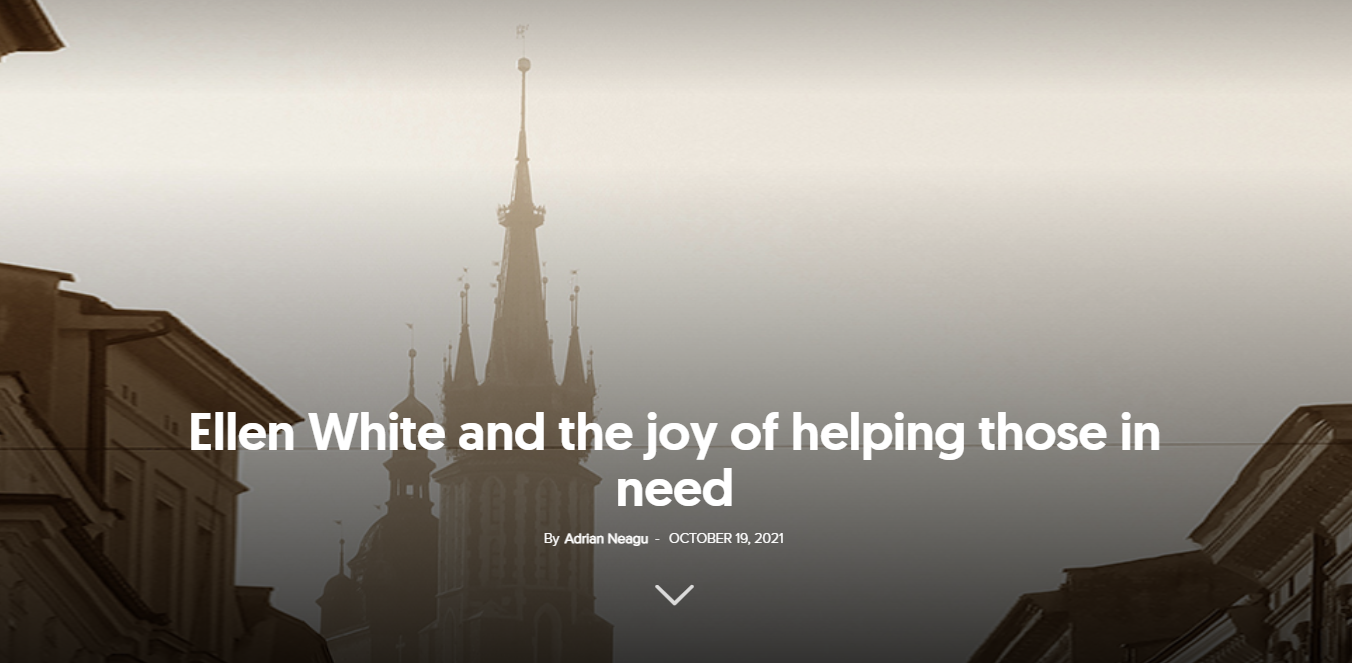Seventh-day Adventists consider the issue of religious freedom to be essential to their mission. “Separation of church and state offers the best safeguard for religious liberty and is in harmony with Jesus’ statement in Matthew 22:21: ‘Render therefore unto Caesar the things which are Caesar’s; and unto God the things that are God’s’.”[1]
Ellen White (1827–1915), who played an important role in the organisation and strengthening of the Seventh-day Adventist Church, stated in 1889: “We are not doing the will of God if we sit in quietude, doing nothing to preserve liberty of conscience.”[2]
An energetic debut
The importance of advocating for religious freedom was evident to Seventh-day Adventists even before their official organisation as a church in 1863. John Nevins Andrews (1829–1883) was the first Seventh-day Adventist to write an article on the subject of religious freedom in 1851.
The first important achievement of the Seventh-day Adventist Church in the field of religious freedom was the inclusion of Adventists as non-combatants during the Civil War (1861–1865). J. N. Andrews spearheaded this endeavour too. The learned Adventist leader represented the newly established Adventist Church in Washington, D.C., in front of Abraham Lincoln’s War Department in 1864. Enrolled Adventists worked as non-combatants in hospitals or any other place of administrative interest.[3]
On July 21st, 1889, the church leaders established the National Religious Liberty Association (NRLA). Its Declaration of Principles stated that “[it] should be the privilege of every man to worship according to the dictates of his own conscience.” [4] The document is based on the principle of separation of church and state.
The decade 1880–1890 was marked in the United States by the actions of the National Reform Association, which wanted to impose Sunday laws, for the general observance of the Christian Sunday Sabbath (blue laws, or Sunday laws). In 1890, Seventh-day Adventists, who worshipped on Saturday, gathered 250,000 signatures from a diverse population against Sunday laws.[5]
The Adventist Church considered any act of the state to impose a day of rest to be a violation of liberty and a betrayal of the First Amendment to the United States Constitution. Adventists considered themselves defenders of the legacy of their founding fathers, such as Thomas Jefferson and James Madison, namely that the state must not interfere in the religious life of its citizens.
A department dedicated to religious freedom
The Department of Public Affairs and Religious Liberty (PARL) was established by the General Conference, the worldwide governing body of the Seventh-day Adventist Church, in 1901.[6] Five years later, in 1906, Liberty was launched, the first magazine on the continent dedicated to religious freedom. Today, the magazine is distributed worldwide to a number of 200,000 erudite readers: lawyers, parliamentarians, experts in the field, pastors, representatives of various NGOs, etc.
Other significant signature-raising campaigns took place in 1926–1929, for the same case of Sunday laws (eight million signatures, but as a result of a joint effort with other similar organisations), as well as in 1931, when 500,000 signatures were collected against the calendar change. At that time, the total number of Adventists was about 300,000, which gives a picture of their impressive degree of mobilisation.[7]
An efficient international network
In 1893, as it expanded outside the United States, the NRLA became the International Religious Liberty Association (IRLA), moving to a new stage in its development.
IRLA is the oldest association dedicated to freedom of conscience, an NGO with one of the largest international networks today (with correspondents in 200 countries).[8] A reorganisation took place on August 16th, 1946,[9] when the IRLA began receiving non-Adventist members in its midst. In 1977, the association organised the first worldwide congress in Amsterdam.
In 2003, IRLA was recognised by the Economic and Social Council of the United Nations, receiving the status of second category NGO of the United Nations. It is represented in New York and Geneva and takes part every year in the meetings of the Human Rights Council.[10] Fides et libertas is the journal in which IRLA experts publish their articles.
European efforts
On this side of the Atlantic, in 1946, Dr. Jean Nussbaum created the Paris-based Association Internationale pour la Defense de la Liberté Religieuse (AIDLR). The association disseminated its ideas through the publication Conscience et liberté and benefited from the endorsement of many international personalities, who agreed to be chairpersons of the Honorary Committee of the AIDLR: Eleanor Roosevelt, Albert Schweitzer, Paul-Henri Spaak, etc. In 1966, the AIDLR moved its headquarters to Bern. The year the AIDLR was established coincided with the year the IRLA was reorganised. The two Adventist associations have had a fruitful collaboration from the beginning.[11]
Perspectives
For the past 170 years, even before their official organisation, Seventh-day Adventists have been dedicated to promoting the principles of religious freedom. “Religious Liberty is in the DNA of the Adventist Church. (…) Let us instill in young people the love for preserving religious liberty and freedom of conscience,” said the current president of the Adventist World Church. “Adventists defend the principle of religious freedom for all people everywhere. It is so deeply rooted in their history and theology that we can expect it to remain one of their essential characteristics.”[12]




















